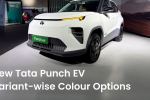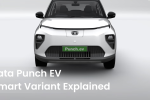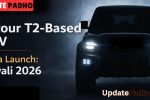The future of mobility is rapidly evolving, driven by the rising demand for electric transportation, smart logistics, and purpose-built solutions. Leading this transformation is Kia, which has officially begun a new chapter with the launch of its Next-Generation Purpose-Built Vehicle (PBV) Era. The highlight of this major shift is the inauguration of Kia’s cutting-edge EVO Production Hub in Korea, a facility designed to revolutionize how vehicles are developed, manufactured, and deployed for specific commercial and mobility needs.
This milestone not only defines Kia’s ambitions for the upcoming decade but also positions the company as one of the global pioneers in modular, electric-first mobility platforms.
What Are PBVs and Why They Matter
Purpose-Built Vehicles, commonly known as PBVs, are specialized vehicles engineered for particular industries or mobility requirements. Unlike traditional automotive models designed for broad usage, PBVs target:
- Ride-hailing services
- Delivery and logistics companies
- Corporate fleets
- Healthcare and emergency services
- Urban mobility and shuttle operations
As the global market moves toward personalization, efficiency, and sustainability, PBVs have emerged as a leading solution for modern transportation challenges. They are compact, energy-efficient, customizable, and integrated with advanced tech—all of which reflect the changing needs of urban economies.
Kia’s Vision Behind the EVO Production Hub
The EVO Production Hub is far more than a manufacturing facility—it’s a central ecosystem for innovation and experimentation. Kia envisions PBVs as the pillar of its long-term mobility strategy, and the new Hub plays a key role in this transformation.
1. The World’s First Dedicated PBV Production Plant
The EVO Hub marks one of the automotive industry’s first fully dedicated production centers for PBVs. This reflects Kia’s belief that these vehicles will soon dominate the mobility market.
2. Designed for Extreme Flexibility
Traditional automotive plants focus on standardized vehicle builds. In contrast, the EVO Hub is designed for:
- Modular assembly lines
- Customizable vehicle bodies
- Quick adaptation to new model designs
- Efficient low-volume and high-volume production
This flexibility is essential for PBVs, as their designs vary across industries.

3. A Smart, AI-Powered Facility
The Evo Production Hub uses:
- AI-driven quality checks
- Autonomous material handling systems
- Real-time manufacturing analytics
- Robotics for precision assembly
The result is a futuristic factory that prioritizes speed, accuracy, and sustainability.
Introducing the Next-Generation Kia PBV Lineup
Kia’s PBV strategy includes a lineup of highly innovative models geared toward different industries.
1. Kia PV5: The Core PBV Model
The PV5 is the company’s first production-ready PBV, designed as a versatile workhorse suitable for:
- Logistics delivery
- Ride-share services
- Medical transport
- Corporate commute shuttles
Its modular interior easily adapts to multiple use cases.
2. Kia PV7: The Larger PBV for Heavy Operations
The PV7 expands cargo capability and passenger capacity, ideal for:
- Large-scale distribution
- Inter-city shuttle networks
- Mobile offices or clinics
3. Kia PV1: A Compact Urban Mobility Solution
Designed for congested cities, the PV1 is perfect for:
- Last-mile delivery
- Quick-service food transportation
- Micro-shuttle services
Collectively, these vehicles highlight Kia’s intent to dominate every segment of the PBV industry.
A Modular Approach: The Heart of Kia’s PBV Philosophy
Modularity is one of the most exciting aspects of Kia’s PBV development.
Flexible Body Types
PBVs built at the EVO Hub can switch between:
- Cargo van body
- Passenger cabin
- Mobile workspace
- Emergency medical unit
- Delivery box structure
This ensures companies can optimize their fleet investments.
Interchangeable Interiors
The interior systems are designed as plug-and-play modules, enabling rapid reconfiguration.
Electric-First Architecture
All PBVs run on Kia’s advanced electric powertrains, ensuring zero emissions and reduced operating costs.
Modularity not only boosts functionality but also aligns with the fast-changing demands of the commercial mobility market.
Sustainable Mobility at the Core
The EVO Production Hub embraces a environmentally responsible vision.
Green Manufacturing Processes
The Hub incorporates:
- Solar-powered systems
- Advanced waste reduction programs
- Energy-efficient automation
- Recyclable materials for vehicle components
Zero-Emission Vehicle Lineup
All PBVs are fully electric, supporting global carbon-reduction initiatives.
Kia aims to play a major role in creating cleaner, smarter cities worldwide.
Transforming Industries with Purpose-Built Mobility
Kia’s Next-Gen PBV Era will transform multiple sectors:
1. Logistics & Delivery Companies
With the surge of e-commerce, delivery efficiency is crucial. PBVs offer:
- Smart cargo design
- Optimized battery range
- Autonomous-ready features
- Fast-charging capability
2. Ride-Hailing & Shuttle Services
Comfortable seating, smart connectivity, and flexible seating configurations make PBVs perfect for mobility-as-a-service (MaaS) platforms.
3. Corporate & Commercial Fleet Management
Businesses can customize PBVs to serve as:
- Mobile offices
- Employee shuttle buses
- Corporate service vehicles
4. Healthcare & Emergency Services
Specialized PBV versions can be designed as:
- Ambulances
- Mobile clinics
- On-site diagnostics units
The possibilities are endless.
The EVO Hub and Autonomous Future
Another exciting aspect of the EVO Hub is its focus on autonomous-ready PBVs.
Kia is integrating:
- Advanced sensors
- AI navigation
- Driver-assist technologies
- Enhanced safety systems
By building vehicles that can adapt to future technologies, Kia ensures long-term relevance and scalability.
Kia’s Global Strategy: PBVs as the Future of Business Mobility
Kia plans to expand its PBV presence across global markets, including Asia, Europe, and North America. With growing demand for smart fleets, modular transportation, and eco-friendly logistics, PBVs could revolutionize how businesses operate.
The EVO Hub in Korea will serve as:
- A global production center
- A research and development powerhouse
- A blueprint for future smart factories
Kia aims to produce millions of PBVs over the next decade, targeting diverse industries and emerging mobility ecosystems.
Conclusion: A New Era Begins
Kia’s launch of the Next-Gen PBV Era, powered by the state-of-the-art EVO Production Hub in Korea, represents one of the most ambitious mobility transformations of the decade. It signals the company’s commitment to developing flexible, sustainable, intelligent, and modular transportation solutions that cater to evolving global needs.
From logistics and shuttle services to healthcare and corporate travel, Kia’s PBVs promise to redefine mobility for businesses and cities worldwide. With innovation at the forefront and sustainability at the core, Kia is not just building vehicles—it’s building the future.



